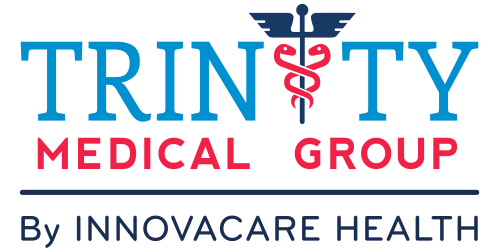New year, new doctor? With new year insurances changes and new beginnings, this time of year is full of firsts, mainly, first doctor’s visits. Your first doctor’s visit can be a little intimidating, but it doesn’t have to be. On average, primary care visits usually last 15 minutes. To get the attention and care you need and deserve while the clock is ticking, your first doctor’s visit needs to be as efficient as possible. Below are some tips to help you have a stress-free first visit and maximize the face-to-face time that you will have with your new physician.
Before Your First Doctor’s Visit
It never hurts to plan ahead. Since everything will need to be reviewed about your medical history and your current health status, it helps to be ready. Start by asking yourself what you want to get out of the visit to help you organize your thoughts and plan. For example, your goal could be to help the doctor better understand your medical history, or getting an answer to a specific question such as “should I worry about this rash on my leg?”
If you can, preparing a printout or written description of your history and current needs will help enormously. Notes about your daily living habits (eating, drinking, exercise, sleeping, etc) as well as the results of any home tests you conduct (such as blood sugar or blood pressure levels) can help save time. Anything you can do to free up precious minutes that would have otherwise been spent with the doctor quizzing you and writing down answers is worth the preparation time. When you make your list of questions, rank them by priority. That way even if you only make it through a few, your most pressing concerns will be addressed.
If you’re beyond the getting-to-know-you stage and are in the office because of an illness, written notes describing your problems, symptoms and needs as specifically and clearly as possible, will be another time-saver. Some things to consider include: if you are in pain and for how long, where the pain is located, how much does it hurt and what makes it better or worse?
Be sure to gather all of your medication bottles as well. This way your medications can be added to your medical record at your new clinic so when the times comes for a refill, you don’t get stuck describing them over the phone.
During The Appointment
The day of your first doctor’s visit, skip the stress and be sure to bring the following with you:
- Your insurance card
- A valid photo ID
- A list of the medications you take, or bring the bottles with you
- Your medical history
- Your list of questions ranked in order of importance
- A list of specialists you’ve seen or prefer
- The address of the pharmacy you would like your medications sent to
When your doctor comes into your room, remember to stick to your list of questions or goals. Although your new physician will want to give you all the time you need, there are other patients that are waiting to be seen as well and appointment times are usually a quick 15- 20 minutes.
Your first visit, however, isn’t just about efficiency, but also about getting to know your new doctor. During your time with the physician, stay alert to how the doctor interacts with you to help you determine if they the right match for you. Do they make eye contact or are they glued to their computer screen? Do they make you feel rushed? Or do they show enough sensitivity and warmth? Depending on what qualities matter to you, you’ll be able to tell quickly whether you prefer the physician that is an authoritative type, making decisions for his patients, or a provider that is a collaborative caregiver, who wants to work with you to come up with the best solution.
After Your First Visit
Keep in mind, your first doctor’s visit isn’t over until you know exactly what you’re supposed to do and when you need to return. A first doctor’s appointment is part of a new, but ongoing relationship– not an isolated event. If you realize you overlooked an important question or if you have any trouble following the doctor’s advice there’s nothing wrong with calling the office. You don’t need to schedule another appointment to get an answer. If your provider is not available via phone, ask to speak with a nurse who can either answer your concerns or pass it on to your provider. Lastly, be sure not to skip your return visit, even if you are feeling better.
We hope these tips help you to have an effective and stress-free first doctor’s visit. Don’t forget to follow us on Facebook and please feel free to comment below with questions or concerns.

 Call Lakeland
Call Lakeland
